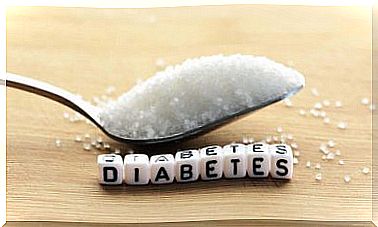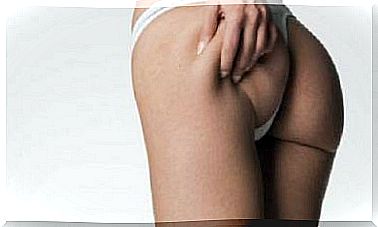4 Tips For Dealing With Hypothyroidism

Hypothyroidism, also called an underactive thyroid, is a disorder that develops when the thyroid gland stops producing enough thyroid hormones. As a result, the body presents a series of changes that compromise health. Today, we’ll give you some tips on how to best deal with hypothyroidism.
Although it can be asymptomatic in its early stages, the hormonal imbalance it causes often leads to problems such as overweight, joint pain, infertility and heart disease, among other factors. While your treatment includes some medications, it is also essential to make some lifestyle changes.
4 tips for dealing with hypothyroidism
Decreased production of thyroid hormones interferes with the normal balance of chemical reactions in the body. Therefore, patients with hypothyroidism tend to gain weight and have symptoms such as prolonged fatigue, palpitations, depression, constipation and others.
Currently, treatment with synthetic thyroid hormones allows hypothyroidism to be dealt with safely and effectively. However, to complement its effects, it is advisable to put in place some healthy habits that will help to control your symptoms. Check out!
1. Increase iodine intake

Iodine deficiency is one of the factors that can favor the development of hypothyroidism. Therefore, one of the recommendations to deal with this disorder is to increase your consumption of natural sources such as chard, radish, seaweed, cereals and fish.
However, it should be borne in mind that if hypothyroidism is not caused by an iodine deficiency, increasing your intake may be useless.
In fact, taking too much iodine supplements can further impair thyroid gland function, making this imbalance more difficult to treat. Therefore, it is important to assess, with the help of a doctor, whether it is necessary to increase your intake of this mineral.
2. Keep a balanced diet
In addition to ensuring an adequate intake of iodine, it is essential to improve the diet. This ensures the proper absorption of nutrients and, in turn, favors the functions of metabolism in controlling body weight. A balanced diet must contain:
- Fiber sources such as whole grains, oilseeds, seeds, fruits and vegetables.
- Lean protein foods such as chicken, turkey, fish, etc.
- Water and healthy drinks.
- Healthy fats, such as those provided by olive oil, avocados or oily fish, among others.
On the other hand, it is necessary to eliminate from the diet what can be harmful to the thyroid and make it difficult to maintain a healthy weight. This includes refined sugars and flours, saturated and trans fats , soy and by-products, hydrogenated oils, etc.
3. Reduce stress

Being exposed to constant bouts of stress can make hypothyroidism more difficult to deal with. This state of mind worsens hormonal disturbances and makes symptoms more severe. Due to this, its lack of management can lead to several complications.
Considering the above, it is recommended to practice relaxation techniques such as taking a hot bath, walking outdoors, receiving a body massage or practicing meditation, yoga or tai chi.
4. Exercise to deal with hypothyroidism
Regular exercise is indicated to help deal with hypothyroidism and its effects on health. While not a substitute for hormone therapy per se, it can offer specific benefits, especially with regard to weight and cardiovascular health.
Moderate exercise reduces the risk of heart disease. In addition, they help control symptoms such as depression, weight gain, fatigue and joint pain. The most important thing is to adapt your exercise routine to your physical capacity. Therefore, the practice of these activities should be done gradually.
Conclusion
As we’ve seen, hypothyroidism is a disorder that causes various functions in the body to go out of control. Therefore, to prevent it from affecting your quality of life, it is important to seek medical treatment and improve your lifestyle.









